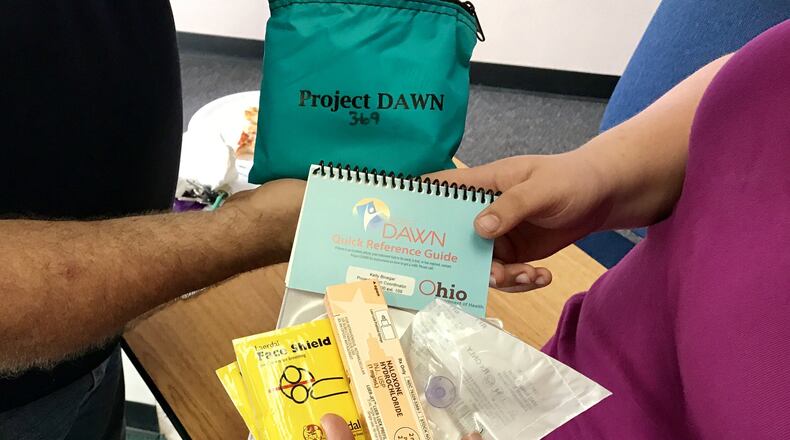“Opioid overdoses might have taken a backseat in our minds last year because of COVID-19, but make no mistake: Ohioans are dying at a devastating rate because of opioid overdoses,” Yost said.
The jump in opioid overdose deaths, which began in April, came after the stay-at-home order and the spike hit after the state had seen a drop in the death rate, which had fallen to six to eight deaths over the last two years.
Anita Kitchen, executive director with the local Families of Addicts, said “the month of April was absolutely crazy for us because so many people didn’t know what to do with their loved ones.”
The jail had been releasing some people to lower the population but at the same time recovery homes were cutting back on capacity and some services were in flux or shifting to online as the pandemic struck and social distancing measures kicked in. The Dayton-based nonprofit hired a member who was out of a job to pick up people getting released from jail who were in detox but not in recovery and at risk when they were released.
“If we need to be going to a treatment center out of state, that’s what we were doing. You just do what you need to do to help people,” she said.
Kitchen said in March and April, so many people were contacting the organization who weren’t sure what to do to help their loved ones, as everyone in all the different organizations and in government were scrambling to figure the situation out the best they could.
“If they couldn’t get treatment, or somebody didn’t reach out to get treatment for them, their bodies don’t handle their drug of choice at the same dosage when they have detoxed. So, they would go back on the streets, they would use how they were prior to going in jail. They overdosed and died,” Kitchen said.
The county with the highest overdose rate was Scioto County with 35.22 deaths per 100,000 people. Clark (16.63 deaths per 100,000 people) and Montgomery (16.07 deaths per 100,000 people) counties had the eighth and ninth highest rates.
In Montgomery County, the loss of life is higher than the year before but lower than the devastation of 2017. So far, preliminary data indicates 321 people in the county died from accidental overdoses in 2020, compared to 285 deaths in 2019, 289 in 2018 and 566 in 2017.
Kitchen said people working on recovery need support and accountability and help they weren’t getting when secluded in the pandemic.
“When you have addiction issues, oftentimes those are aligned with mental health issues, and being alone is not a healthy thing. Also, if you end up using drugs, you’re alone, and if you overdose alone you are probably going to die,” she said.
How to get help
Anyone struggling with substance abuse addiction or who knows someone who needs help can call the Ohio Department of Mental Health and Addiction Services’ toll-free help line at 877-275-6364, text 4hope to 741741 or visit www.recoveryisbeautiful.org.
To reach the Crisis Text Line, text the keyword “4hope” to 741 741 to be connected to a trained crisis counselor within 5 minutes.
To find local service providers for addiction, rehab, mental health and more in Montgomery County, download the GetHelpNow interactive directory to find a facility near you. You can find it in the app store on your phone or go to gethelpnowmc.com to click “access for free.”
For Montgomery County 24/7 crisis care, call Samaritan Behavioral Health at 937-224-4646.
The Miami Valley Warmline is (937) 528-7777 for free, confidential mental and behavioral health assistance 11 a.m. – 7 p.m. Monday to Friday.
Families of Addicts educates, empowers and embraces families, friends and people struggling with addiction. Meetings moved virtual during the pandemic. More information is at facebook.com/FOAfamilies or foafamilies.org.
About the Author

